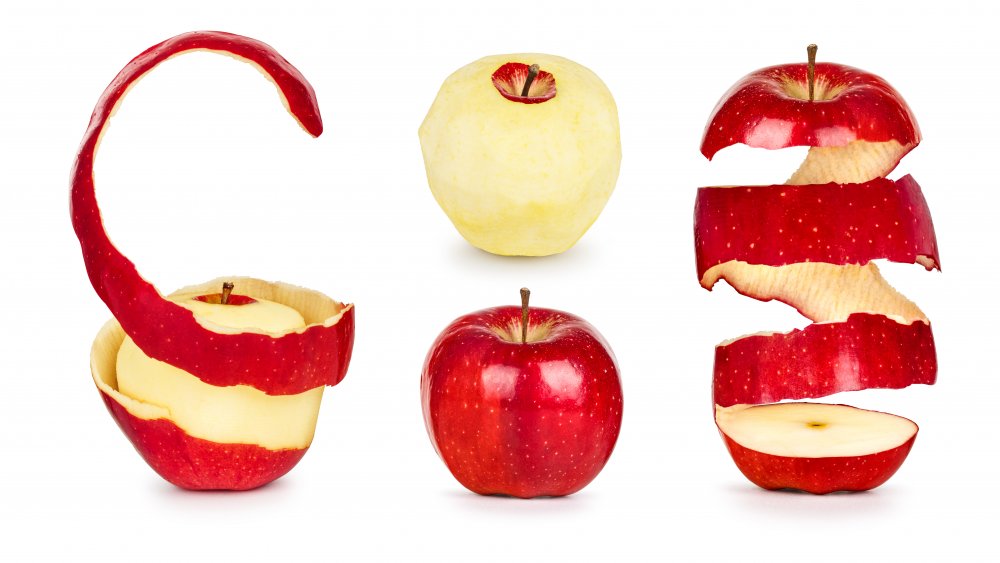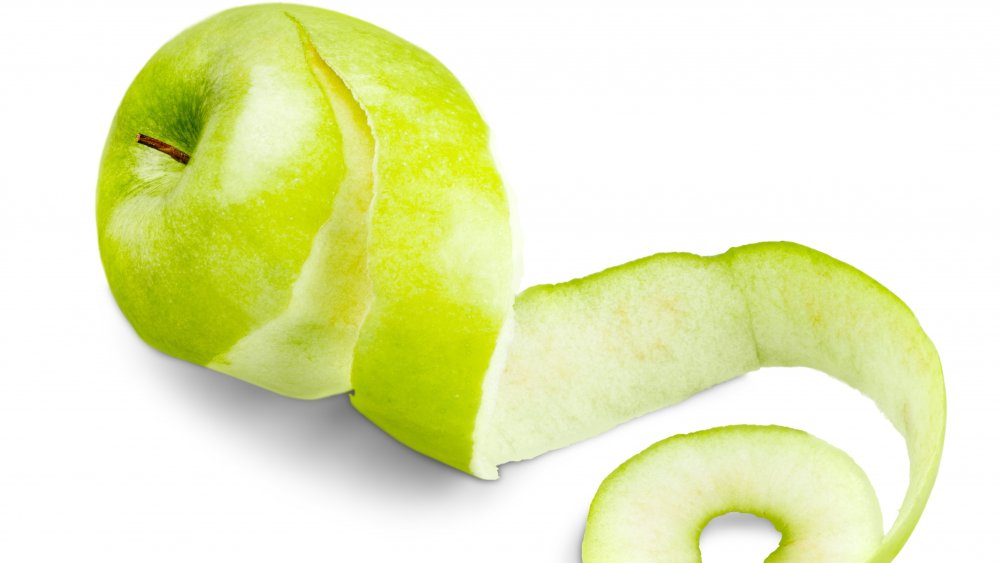The Real Reason You Should Be Saving Your Apple Skins
Eating fruits and vegetables is, without a doubt, beneficial to living a healthy life, and apples are among the powerhouses of fruits you should be eating. With over 100 different varieties of this fruit grown commercially in the United States alone (via USApple), and even more varieties of apples grown worldwide, apples are easy to find, and at about 52 calories per medium apple, they are the perfect snack (via Healthline).
We've all heard the saying, "An apple a day keeps the doctor away." Turns out, there's some truth to it. Apples contain a myriad of vitamins, minerals, fiber, and antioxidants that really can help stave off some diseases when coupled with a balanced diet and exercise.
But did you know that the apple peel actually contains more nutrients than the flesh? In fact, two-thirds of the fruit's fiber content is found in the peel.
If the apple peel is so healthy, why do people cut it off? Some of the reasons can be chalked up to picky eaters, while others center around the worry of consuming pesticides. However, experts contend that while in addition to washing fruit, removing the peel may help get rid of some pesticides, the difference is probably minuscule. And because pesticides are regulated closely, you should not be overly concerned when it comes to eating the peel, as the nutritional benefits can outweigh the risks of doing so (via Healthline).
So, what are the possible long term benefits of eating the apple, peel and all? They are worth exploring.
Benefits of eating the apple peel
An apple with its skin is a treasure trove of vitamin and mineral goodness. With the peel, an apple contains "... up to 332 percent more vitamin K, 142 percent more vitamin A, 115 percent more vitamin C, 20 percent more calcium, and up to 19 percent more potassium" than an apple without its peel. Those are some significant percentages that should not be dismissed. But it's what the consumption of all that goodness can do for you that really explains why you should eat the apple peel.
First, eating the apple peel is going to make your tummy feel fuller and will help keep phantom hunger pains at bay. That's good for anyone watching their waistline, right? And because of its high concentration of antioxidants, including the anti-inflammatory quercetin, eating the apple peel may help protect against tissue damage that has been linked to Alzheimer's (Science Daily). Apple peels also contain triterpenoids, which are compounds that help protect your body against liver, colon, and breast cancer (via Evewoman).
Moreover, according to a study conducted by the University of Illinois, apple peels may help reduce obesity and diabetes. The study showed that apple peels contain ursolic acid, which helps burn calories (via Diabetes.co.uk) while the fiber, which can slow down carbohydrate digestion, helps regulate blood sugar levels (via Healthline). All of these are good reasons to think twice before tossing the apple peel into the trash.

